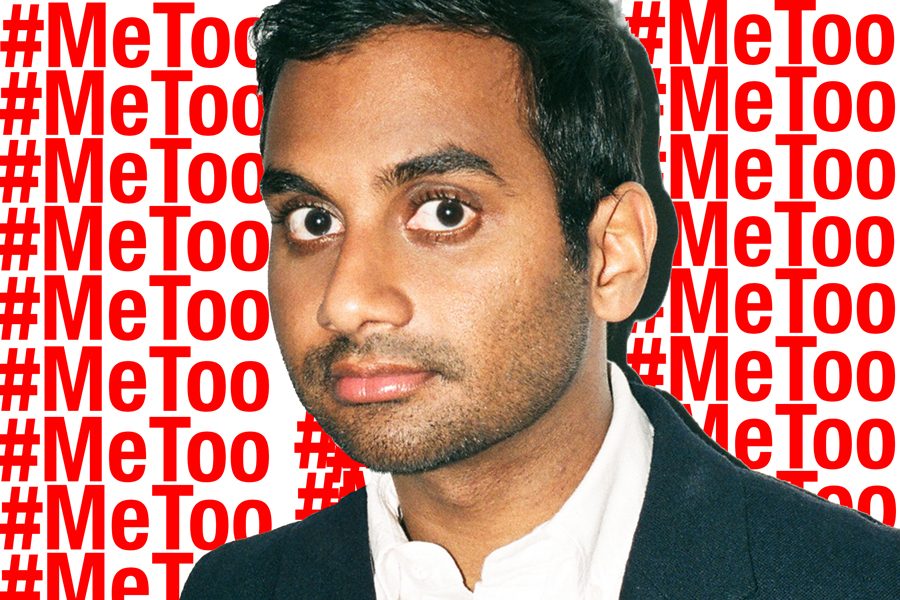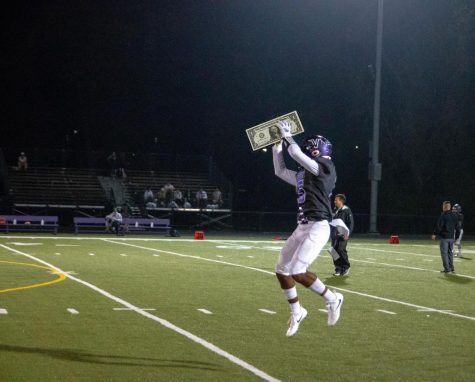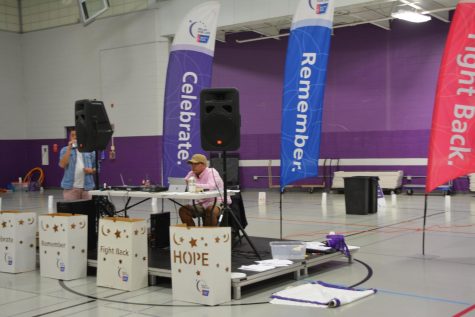Aziz Ansari pushes what the #MeToo movement stands for
January 26, 2018
On Jan. 13 an article was published in Babe magazine telling the story of a date gone wrong of a young women and Aziz Ansari. While most of the sexual assault accusations recently released have generated immediate support for the woman and shame for the accused, this story caused people in the #MeToo movement and the media to take sides in this case.
The article tells how Ansari was overly aggressive on a date with a woman who was obviously uncomfortable with the encounter in his apartment. The article said during the encounter, “She used verbal and non-verbal cues to indicate how uncomfortable and distressed she was.”
After the article was published people, both men and women, posted articles, tweeted, and ranted about how the accuser was in the wrong and by publishing this story she discredited the entire movement. Most notably, Ashleigh Banfield on CNN roasted the accuser in the form of an open letter in a video that went viral. Banfield said, “What you have done is appalling… you have chiseled away at a movement.”
While I do not believe that the article published on Babe was the best way to release this story, I do believe that people have lost sight of what the #MeToo movement is about in their shameless tearing apart of this woman who was trying to tell her story.
The purpose of the #MeToo movement is to lift up women. It is about letting us tell our stories because we have been silenced and not believed for so long.
It is true that Ansari is no Harvey Weinstein or Kevin Spacey but we should still listen to this woman’s story. In fact, it might be more important for young women to hear stories like this one because this is how most sexual assault occurs. Cautionary tales like this can be used as support for other women in similar situations.
Society needs to employ this story as a teachable moment. What we can learn is that men should read the body language of women, and take seriously when a woman says no. We need to teach that situations like this are not okay, and that we should not blame women when they happen. Most importantly, that there should be greater communication between people about sex, so clear lines never get crossed.
I sincerely hope that the woman who published this story did not have malicious intent, and only wanted her story to be told. Ansari’s career should not be ruined from this event. His show, “Master of None” constantly questions the norms around dating in this digital age, and this experience can give him new insight to be incorporated into the show in order to teach others how to behave.
Many think this incident should end Ansari’s career. They argue that he is a hypocrite for making his career by posing as a feminist. He wore a “Time’s Up” button at the Golden Globes. His viral stand up routine cemented his reputation as being the “nice guy.” The show “Master of None” portrayed people abusing their power in the TV industry and committing sexual assaults even before the #MeToo movement took up the issue.
In an article on Elle, Mahalia Chang said, “Throughout the entire history of Hollywood, women have been shown the door for being linked to these situations, and most of the time they’re victims, so why should Aziz get to go on without any career implications?”
But I think the way we move forward from this wave of woman power is forgiveness.
I strongly believe that there is no question of what to do with people like Weinstein, but in situations like this, I think it is best to forgive. The way we move closer to crushing the patriarchy is not by sending every man who did something wrong to Siberia, it is by setting a standard for the right way to act.
The #MeToo movement is a women’s empowerment movement that has shaken the nation. Its goal should not be outing individual people, but improving the relations between the sexes. We need to keep fighting for justice and equality of the genders in our world, and we are moving closer to this goal when women feel liberated enough to tell their stories.






